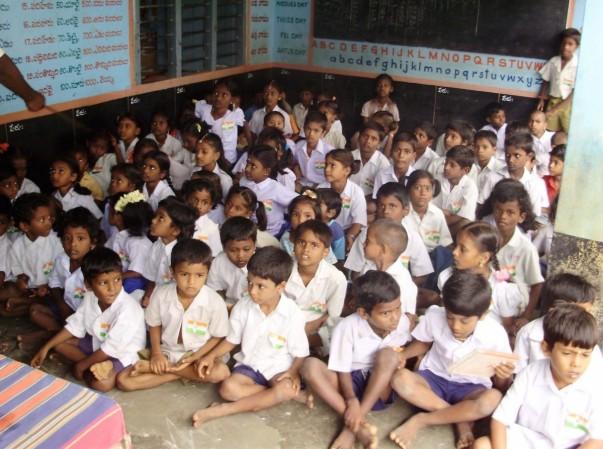
Shortage of funds, lack of teachers' training, feeble academic planning and inadequate functioning are the key challenges faced by the primary education system in West Bengal, says a report of Pratichi Institute, which is associated with Nobel laureate Amartya Sen.
The report points out that while a few state-run primary schools have made a significant progress in terms of pupil-teacher ratio (PTR), many schools continue to lack funds and required efforts.
"According to 2015-16 data, the average PTR in Bengal's primary schools is much favourable -- 23 to one -- as compared to 49 to one a decade ago. But some schools still have an unacceptably high PTR of 40 to one. An irrational distribution of existing teachers makes the situation more complex," says the report.
The fund shortage, the report says, averages Rs 69,000 per school per year. The deficit includes day-to-day expenses (Rs 33,000), as well as additional instructors and equipment needed for extra-curricular activities.
"There have been important improvements in the implementation of mid-day meal programme in the state. However, a decent meal would require Rs 7.14 per child per day while the current allocation is Rs 4.13," the report says.
It points to a survey that says the deficit in mid-day meal fund is currently met by teachers and other staff members. But the report stresses that such an urgent issue cannot be left to "voluntary generosity".
The report says four percent of the schools are still being run by just one teacher. Highlighting the lack of proper curriculum in schools as another problem, the report says the schools that have performed well, show a proper implementation of "continuous and comprehensive evaluation (CCE)."
It stresses improvement in the quality of teaching, syllabus and textbooks and augmenting financial resources for the state-run primary education system.

















